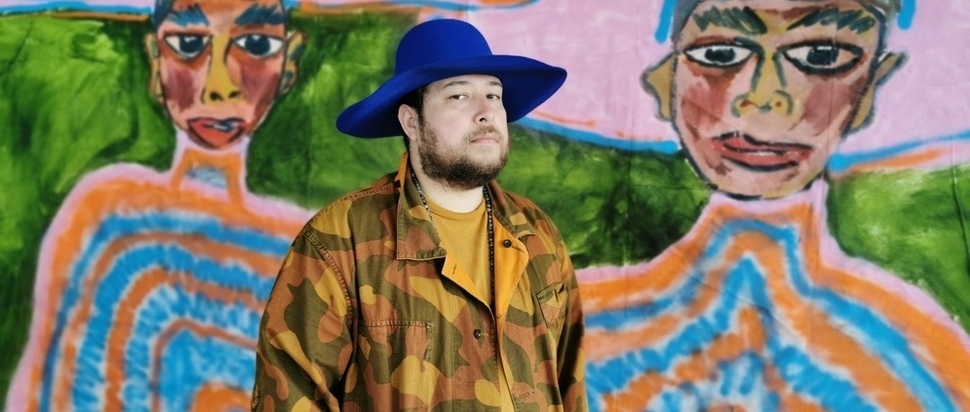Josè Campos on finding belonging and creating community
Hazel Peters meets Josè Campos (aka Studio Lenca) to discuss his practice. This piece was commissioned as part of Edinburgh Art Festival's Emerging Writers programme
Josè Campos, aka Studio Lenca, is an El Salvadorian artist working in the UK. His work tells an autobiographical story strongly rooted in the history and culture of El Salvador. The Invisibles exhibition explores the complex erasure of his culture and identity. Hazel Peters meets Campos to discuss these concerns and how his practice addresses them.
Hazel Peters: Please speak about the harmful effects of the Latinx identity going unrecognised in the UK, and how The Invisibles explores this.
Josè Campos: The Latinx community in the UK calls themselves “The Invisibles’’, and that's because people are mostly working in service industries: in restaurants and cleaning houses. When you arrive in the UK and have to apply for something – say, council tax – there is no box for you to tick. You have to tick ‘other’, and it feels like a slap in the face; you feel invisible.
In London, the Latinx community has been pushed further underground due to the Elephant and Castle Shopping Centre – a cultural hub for the Latinx community – being knocked down. The Elephant and Castle Shopping Centre hosted many Latinx businesses: restaurants, grocery stores, tailors, and even nightclubs. Now that it’s been knocked down, the Latinx community has been forced to disperse. If people were able to tick Latinx on a form, then provision for those communities could be given. Being able to see yourself, whether it's on a form, in an institution, or in other people, is a powerful thing. When that’s missing, you feel invisible.
HP: You say that it is lonely being Latinx in the UK – how have you created community and belonging for yourself?
JC: I live in Margate, Kent, so the nearest Latinx community is in London. Being outside of London already creates a level of removal. There is a community around nightclub culture with Latinx music, but I’m removed from that community because as an introvert clubbing isn’t my thing.
I have found an alternative way of creating community through collaborating with Latinx people for my portraiture series Los Historiantes. People recognise the Latinx iconography – iguanas or people carrying vessels on the head – in my paintings and get in touch. My paintings are creating a community which is so special to me!
HP: Tell me about the piece Esta fregado which is in The Invisibles.
JC: Esta fregado is the first piece I created for The Invisibles. Esta fregado comes from the experience of helping my mom clean houses when I was younger. The tablecloth featured in the piece is a typical working class tablecloth. Cleaning products deteriorated the tablecloth surface, so much so it is impossible to look at the piece and understand what it is about. This deterioration is mirrored by what is happening to my mother’s body as a result of her manual labour. This piece is an act of solidarity and extremely personal to me.
HP: Why is it important that your work is autobiographical?
JC: Onlookers can assume I’m an artist because I had a privileged upbringing, so I always start with the story that I migrated by land to the US during the civil war in El Salvador. That is a very humble starting point. It is my art education that has allowed me to cross social boundaries and become an artist. My work is also a critique of, or questioning of, where are the others? It is about creating a biography that places us in spaces we’re not normally seen in.
The Invisibles showed at Sierra Metro as part of Edinburgh Art Festival 2022 / studiolenca.com
This piece was commissioned as part of Edinburgh Art Festival's Emerging Writers programme; scroll on to read more from writers in the programme
